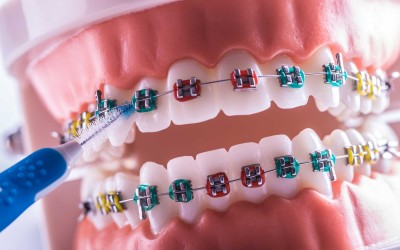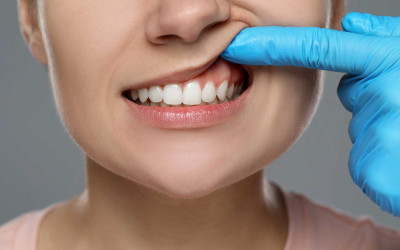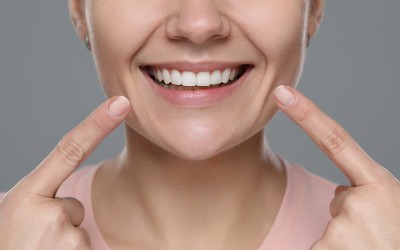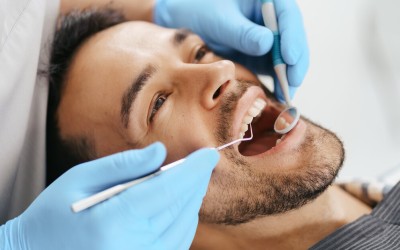Proper Care Routine for a Healthy Mouth

Proper Care Routine for a Healthy Mouth
- 25 July 2024
- 6202 views
How should a proper oral care routine be? Discover our expert recommendations and take steps to protect your oral health now!
This content is for informational purposes only and does not replace medical advice, diagnosis, or treatment. Please consult a healthcare professional for any health concerns.
Table of Contents
Good oral hygiene prevents cavities, gum disease, and other oral problems while ensuring fresh breath and a beautiful smile. Creating the right oral care routine not only protects your teeth but also supports your overall health. Therefore, establishing a proper care routine is essential.
What Should an Oral Care Routine Include?
An effective oral care routine should include the following steps:
Brushing Your Teeth Correctly
Brushing your teeth is one of the cornerstones of oral hygiene as it prevents plaque buildup and cavities.
- Brush Twice a Day: Brush your teeth at least twice a day, in the morning and evening. Each brushing session should last at least two minutes.
- Choose the Right Brush: Use a soft-bristled toothbrush. Soft bristles clean the plaque without irritating the enamel and gums.
- Use Fluoride Toothpaste: Fluoride strengthens the enamel and prevents cavities. Choose a toothpaste that contains fluoride.
- Learn the Brushing Technique: Place the toothbrush at a 45-degree angle to the gum line and brush in gentle, circular motions. Don't forget to clean all surfaces of the teeth, especially the back teeth and gum line.
Use Dental Floss
Including dental floss in your oral care routine is one of the most effective ways to clean plaque and food particles between your teeth.
- Use Dental Floss Once a Day: Use dental floss at least once a day, preferably before bed.
- Learn the Proper Technique: Gently slide the dental floss between your teeth and up to the gum line. Curve the floss into a C shape and clean each side of the tooth. Use a clean section for each tooth gap.
Tongue Cleaning
Tongue cleaning is an important part of oral hygiene as bacteria that accumulate on the tongue can cause bad breath and cavities.
- Use a Tongue Cleaner: Use a tongue cleaner or a soft toothbrush to clean your tongue. Gently clean from the back of the tongue to the front.
- Clean Regularly: Do this daily after brushing your teeth.
Use Mouthwash
Mouthwashes are very important for an oral care routine as they provide an additional step to improve oral hygiene. Antibacterial mouthwashes prevent plaque formation and reduce bad breath.
- Use Once or Twice a Day: Use mouthwash once or twice a day. It's recommended to use it after brushing and flossing.
- Use Properly: Swish the mouthwash around your mouth for the time indicated on the bottle and then spit it out. Make sure to use a mouthwash appropriate for children if needed.
Maintain a Balanced Diet and Stay Hydrated
Proper nutrition is also important for a healthy mouth. Sugary and acidic foods can cause cavities. A healthy diet protects your teeth and gums.
- Avoid Sugary and Acidic Foods: Sugary and acidic foods and drinks can damage your enamel. Limit these and brush your teeth after consuming them.
- Drink Water: Drinking plenty of water helps clean food particles from your mouth and increases saliva production. Saliva neutralizes acids in the mouth and prevents cavities.
- Consume Calcium and Phosphorus Sources: Foods rich in calcium and phosphorus (dairy products, leafy greens, fish) strengthen the enamel.
Regular Dental Check-Ups
Regular dental check-ups are an essential step for an oral care routine as they are one of the most effective ways to maintain your dental health. A dentist evaluates your oral health, cleans plaque and tartar buildup, and detects early dental problems.
- Visit Every Six Months: Visit your dentist every six months. Your dentist helps prevent dental and gum diseases by performing cleanings and examinations.
- Remember the Importance of Early Intervention: Your dentist can detect and treat cavities, gum disease, or other oral problems in their early stages, making the treatment process easier and more effective.
A proper oral care routine is the key to protecting your teeth and gums. Simple steps like regular brushing, flossing, using mouthwash, and maintaining a balanced diet will significantly improve your oral health.







